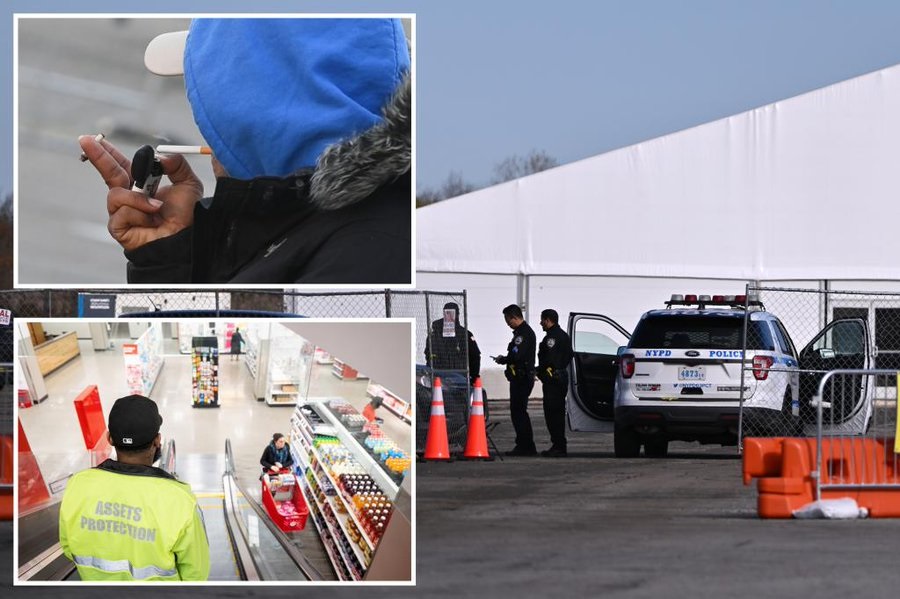
New York will investigate “lawlessness” after a rise in crime near the Floyd Bennett Field shelter (Photo: NY Post)
NYC Vows to Address Crime Amid Migrant Controversy
New York will investigate “lawlessness” after a rise in crime near the Floyd Bennett Field shelter, where almost 2,000 asylum-seekers are housed. Mayor Eric Adams’ spokeswoman said the city would investigate and prosecute migrants at the shelter for theft, robbery, and panhandling as crime rates rise.
Local communities surrounding Floyd Bennett Field have experienced a rise in criminal incidents since the arrival of asylum-seekers, prompting concerns about public safety. This surge in criminal activity has led to heightened tensions and unease in the area, with reports of theft, panhandling, and other illicit activities adding strain to the local community.
The New York Post’s exclusive report highlighted shoplifting, scams, and other criminal activities affecting the Brooklyn communities around Floyd Bennett Field. The NYPD’s data revealed an increase in theft, robbery, and petit larceny within the precinct encompassing the former airfield, coinciding with the arrival of the migrants. The situation has prompted city officials to take a proactive stance in addressing the issue and maintaining order and safety in the area.
READ ALSO: Life Sentence Handed Down For Double Murder In Temecula Tragedy
Although the majority of migrants are reportedly law-abiding individuals pursuing improved living conditions in New York, a minority involved in criminal activities has brought shame to the shelter. The city’s dedication to the investigation and resolution of any instances of criminal activity is consistent with its endeavors to establish a secure and protected setting for both inhabitants and individuals seeking asylum in the vicinity of the Floyd Bennett Field shelter.
The City’s spokeswoman stressed the importance of cooperation and adherence to the code of conduct in the shelter to create a safe and peaceful atmosphere for all residents. The city remains dedicated to solving migrant-related lawlessness and protecting the local population while the inquiry continues and solutions are developed.
READ ALSO: Deadly Neighborhood Encounter Leads To High-Speed Chase And Arrest On Interstate 75
























